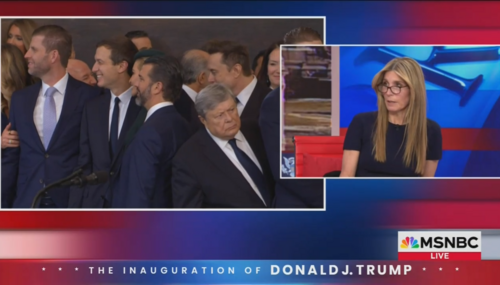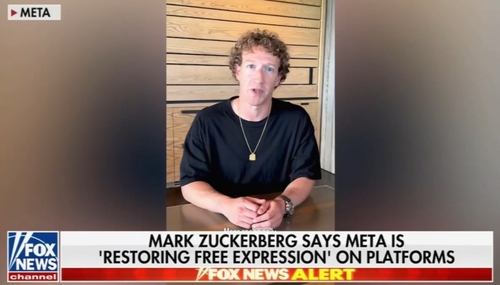On the front page of Saturday’s New York Times, environmental reporter Coral Davenport filed from Morocco on how shell-shocked diplomats at an international climate conference were responding to Trump’s election victory (spoiler: not well) in “Climate Pact Negotiators Confront a New Peril.”
While Davenport went into loving detail on how the international community could punish the United States if it withdraws from the Paris climate accord, another alleged news story ranted: “Despite overwhelming scientific evidence that the world’s climate is changing, the president-elect of the United States, Donald J. Trump, has long been on the side of the deniers.”
Davenport wrote:
Diplomats from around the world converged here this week with the plan to put details on last year’s Paris climate accord and move the globe closer to controlling the industrial emissions that are heating the planet.
Instead, with the election of Donald J. Trump -- and his threat to withdraw the United States from the accord -- shellshocked negotiators confronted potentially deep fissures developing in the international consensus on climate change. On the sidelines of the negotiations, some diplomats turned from talking of rising seas and climbing temperatures toward how to punish the United States if Mr. Trump follows through, possibly with a carbon-pollution tax on imports of American-made goods.
“A carbon tariff against the United States is an option for us,” Rodolfo Lacy Tamayo, Mexico’s under secretary for environmental policy and planning, said in an interview here. He added, “We will apply any kind of policy necessary to defend the quality of life for our people, to protect our environment and to protect our industries.”
Forcing United States industries to turn to cleaner energy sources with the hammer of an import tariff is not far-fetched. Countries imposing costs on their own industries to control carbon emissions could tell the World Trade Organization that United States industries are operating under an unfair trade advantage by avoiding any cost for their pollution.
Davenport took care to label Trump’s supporters as funded by the Koch brothers, liberal enemy No. 1.
In France, Nicolas Sarkozy, the former French president who is campaigning to hold that office again, suggested this week that the European Union impose a carbon tariff on American imports if Washington withdraws.
Supporters of Mr. Trump’s climate change policies say they are not worried.
“It’s an empty threat,” said Thomas J. Pyle, the president of the Institute for Energy Research, an organization partly funded by the billionaire libertarian brothers Charles and David Koch and which Mr. Trump has cited as influential in shaping his energy and climate proposals.
....
Mr. Trump, who has called climate change a hoax invented by the Chinese, campaigned on a promise to dismantle the Obama administration’s climate rules and put coal miners back to work. But since he was elected, he has not commented publicly on his climate plans. Mr. Trump’s transition team did not respond to a request for comment.
Not till the end did Davenport inject a little economic reality into the situation.
Economists warn that a carbon tariff now could backfire.
“Is he the sort of person who would back down or would he retaliate?” Robert N. Stavins, the director of Harvard University’s environmental economics program, asked about Mr. Trump. “He seems like the kind of person who would retaliate. And then you’d have a trade war.”
....
Other experts agreed that choosing to impose a carbon tariff should be done with care for the consequences.
The lead sentence of Edward Wong’s “report”, “In Sign of Shifting Roles, China Gives U.S. a Lecture on Climate,” was closer to an opinion rant than a news story.
Despite overwhelming scientific evidence that the world’s climate is changing, the president-elect of the United States, Donald J. Trump, has long been on the side of the deniers.
In 2012, he posted on Twitter a couple of messages that asserted that climate change was a hoax that China had devised to secure an unfair trade advantage, presumably because the Obama administration was seeking to curb coal consumption in the United States.
....
China’s lecturing the United States on the need to fight climate change is a reversal from the usual roles and a sign that, with the United States governed by Mr. Trump, China may have to take the leadership position in the global campaign.
Helpful hint to the U.N.: “New World Order” may not be the best way to get Trump voters on board with “climate change” legislation.
But the agreement now has enough countries as signatories to make it legally binding, and Mr. Trump may have a hard time extricating the United States from the deal. In addition, other countries have said they intend to go ahead with the plan on their own.
“It is a new world order,” Erik Solheim, the executive director of the United Nations Environment Program, said in Marrakesh. “Leadership on climate change policy has now gone to the developing countries, China among them.”
However, having the United States on board would be hugely helpful in trying to meet the ambitious goal of keeping the future increase in global temperatures below 3.6 degrees Fahrenheit. The United States is the second-leading emitter of greenhouse gases, after China.
....
China is already grappling with the direct consequences of climate change, like melting glaciers in western mountain ranges and expanding deserts.




